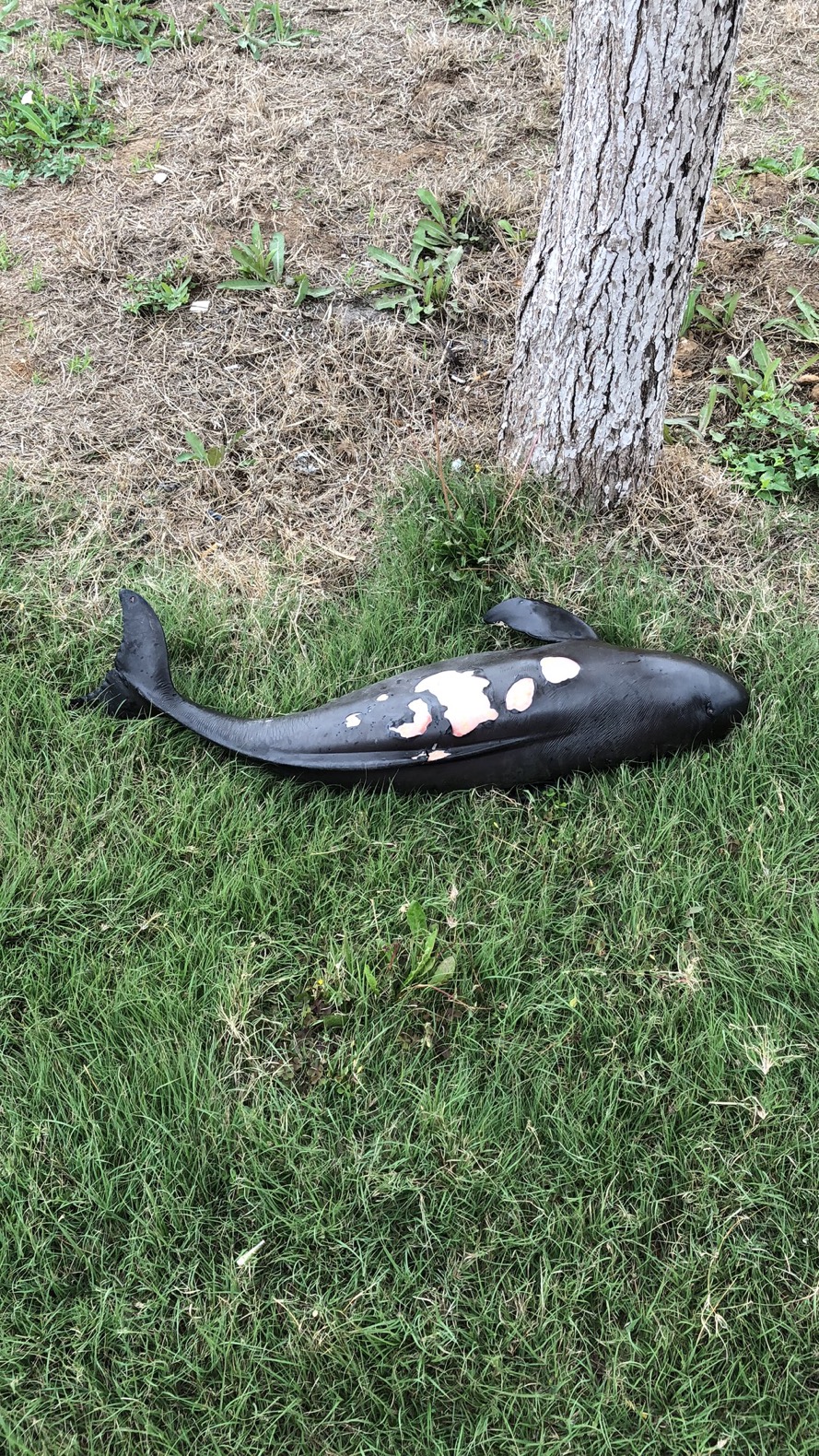In mid-May, a volunteer found a body of seawater finless porpoises at the Bohai Bay, and instantly contact us (China Biodiversity Conservation and Green Development Foundation, CBCGDF). We take actions from the perspective of Ecological Civilization.
Firstly, we immediately contact scientists, wishing Xiaoji (Ji is the abbreviation of Hebei Province) could make its last contribution to human beings, their peers, and the ecology. Xiaoji has devoted its life to the nature and ecological environment. Now, it passed away. What can it do for ecology? And what can we do for the construction of Ecological Civilization by its body?
We consult with scientists do they hold interest in scientific research into its genetic resource and DNA. We are very lucky to receive a positive response from an authoritative institution of marine gene bank. "They tell us they are eager to participate in the research, and leaving for to take a sample". We feel very happy.
Therefore, Xiaoji and us make an important contribution to the construction of Ecological Civilization, eco-environment protection, and seawater finless porpoises.
We wish to build a template- firstly, for scientists, what endangered species do you need? We can establish a database and publish your needs to the world. So, you don’t need to hunt or try to minimize wild catching for scientific research.
This is the ethics of science.
Many people say, "I need to carry out scientific research, so I have to hunt and kill (wildlife)." Sometimes, there is no other solution. However, I would like to raise the question:
Could we establish a database with multiple modern technologies such as big data, information technology, and artificial intelligence to share the assets and wealth endowed by nature? A core of Ecological Civilization is to cherish nature.
We hope scientists could contact us with your needs. We hope conservationists in China and the globe could contact us once you find animal bodies, just like what volunteers of CBCGDF have done. They reported to us immediately when seeing the seawater finless porpoises. The instant response makes the platform possible. And this is a practice of fulfilling Ecological Civilization.
In addition, we also reached out to experienced scientists for analyzing the cause of death. Luckily, we received a very positive response from Dr. Sara Platto who has studied animal behavior, animal welfare, and veterinary science. She lives in Wuhan and has not yet received the nucleic acid test, so she cannot make it to Tianjin. In order to make sure of smooth operation, she wrote a detailed introductory document for directing the postmortem examination. Dr. Sara also participated in the examination virtually.
Some scientists have given preliminary judgment that Xiaoji could die of the collision with a ship. The anatomy will help us identify the accurate cause of death, which will further contribute to the protection of seawater finless porpoises, port, and channel construction and maintenance. We welcome designers and practitioners of port and channel construction project to contact us and solicit public opinions on the impact on marine life.
This is not over.
We get an encouraging response from a science museum. The museum will freely provide us with the advanced technology of specimen production- to classify the body and organs for long-term preservation.
Generally speaking, the production of an animal specimen in the industry is worth rethinking from the perspective of animal welfare.
Many wild animals have been caught for specimen production, and the wild catching is officially approved, sadly. The production of the specimen is at the cost of biodiversity loss, which is evitable.
So, can we improve the channel of specimen obtaining from today?
Can we set up an information system to utilize wildlife die of natural causes, rather than catching from the wild?
We have a nationwide wild animal rescue network, with which the information of injured animals is shared. When rescuing a wild animal, we can extract a small amount of DNA (not influencing its living status) for scientific research. The dead wildlife can be used for specimen production. Can institutions and organizations who need specimen register in our database when submitting the application to official departments?
The demise of Xiaoji arouses the reflection on the construction of Ecological Civilization. It is immortal for its contribution to human, its peers, other creatures in the ocean, and habitats shared by all life on the earth.
We are going to attach the story with the specimen of Xiaoji in the museum, so every visitor will learn the philosophy of Ecological Civilization. In the era of Ecological Civilization, everyone can make a contribution.

(Photo credit: CBCGDF)
Original Chinese article:
http://www.cbcgdf.org/NewsShow/4854/12565.html
By / Wang Yanqing Modified / Maggie
